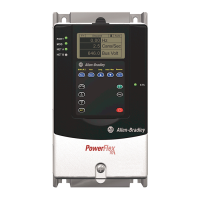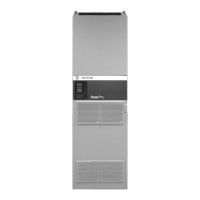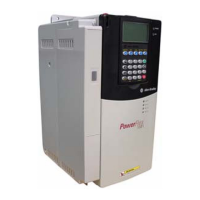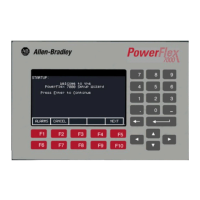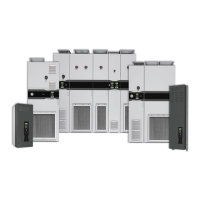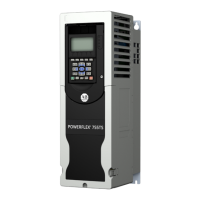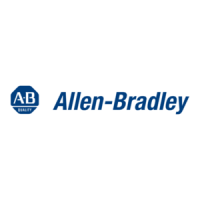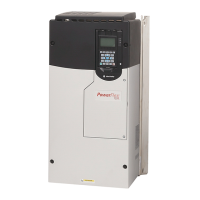C-22 Application Notes
Stop Mode
Mode Description
Coast to
Stop
This method releases the motor and allows the load to stop by friction.
1. On Stop, the drive output goes immediately to zero (off).
2. No further power is supplied to the motor. The drive has released control.
3. The motor will coast for a time that is dependent on the mechanics of the system
(inertia, friction, etc).
Brake to
Stop
This method uses DC injection of the motor to Stop and/or hold the load.
1. On Stop, 3 phase drive output goes to zero (off)
2. Drive outputs DC voltage on the last used phase at the level programmed in [DC Brake
Level] Par 158. This voltage causes a “stopping” brake torque. If the voltage is applied
for a time that is longer than the actual possible stopping time, the remaining time will
be used to attempt to hold the motor at zero speed.
3. DC voltage to the motor continues for the amount of time programmed in [DC Brake
Time] Par 159. Braking ceases after this time expires.
4. After the DC Braking ceases, no further power is supplied to the motor. The motor may
or may not be stopped. The drive has released control.
5. The motor, if rotating, will coast from its present speed for a time that is dependent on
the mechanics of the system (inertia, friction, etc).
Coast Time is load dependent
Stop
Command
Time
Output Voltage
Output Current
Motor Speed
Stop
Command
DC Hold Time
(A)(C)(B)
Time
Output Voltage
Output Current
Motor Speed
DC
Hold Level
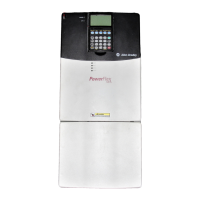
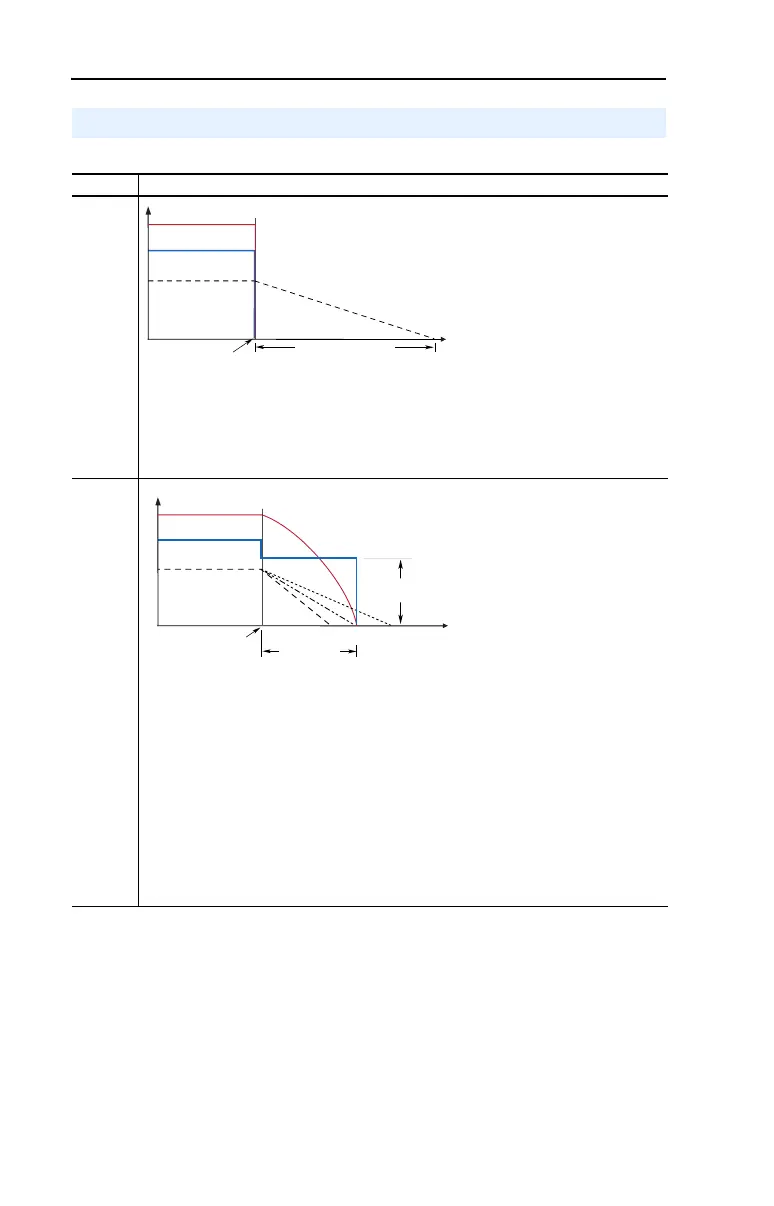